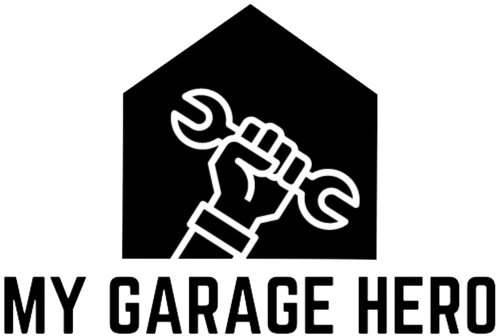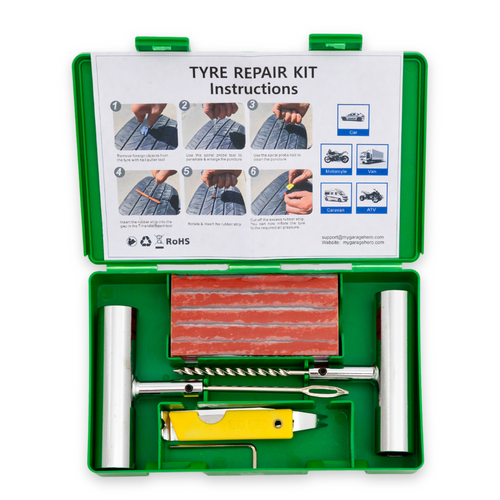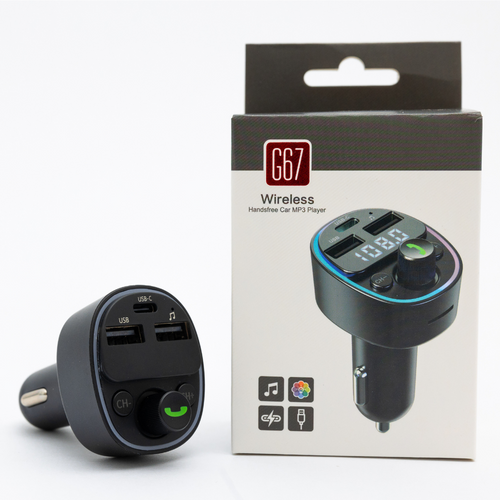There’s nothing worse than turning the key (or pushing the start button) and hearing nothing but silence. A car starter problem can be frustrating—especially if you're in a hurry. But don’t panic! Most of the time, when your car won’t start, the cause is common and fixable.
In this guide, we’ll break down the most frequent car starter problems and how to troubleshoot and fix them—whether it’s a dead battery, faulty starter motor, fuel issues, or something else.
1. Dead Battery (Most Common Car Starter Problem)
🔹 Signs of a Dead Battery:
✔️ Dashboard lights are dim or completely off.
✔️ Engine makes a clicking sound but doesn’t turn over.
✔️ Headlights and electronics won’t work.
🔹 What Causes It?
❌ Leaving headlights or interior lights on overnight.
❌ Battery is old (car batteries typically last 3–5 years).
❌ Alternator isn’t charging the battery properly.
🔹 How to Fix It:
✅ Jumpstart your car using a jumpstarter or jumper cables and another vehicle.
✅ If the car starts after a jump, drive for at least 15–20 minutes to recharge the battery.
✅ If the battery dies again soon, it’s time for a battery replacement.
🚗 Pro Tip: Keep a portable jumpstarter in your car so you’re not stranded without another vehicle to help. A portable jumpstarter is the fastest solution to this common car starter problem.
2. Bad Starter Motor
🔹 Signs of a Bad Starter (a classic car starter problem):
✔️ Turning the key results in a single click or multiple clicks but the engine doesn’t crank.
✔️ Headlights and interior lights work fine, but the car won’t start.
✔️ You hear a grinding or whirring noise when trying to start the engine.
🔹 What Causes It?
❌ Worn-out or damaged starter motor.
❌ Poor electrical connection to the starter.
❌ Stuck starter solenoid.
🔹 How to Fix It:
✅ Tap the starter motor lightly with a wrench or a screwdriver—this can temporarily free a stuck solenoid.
✅ Check the battery connections and clean any corrosion.
✅ If tapping the starter doesn’t work, you’ll likely need a starter motor replacement.
🚗 Pro Tip: If it’s a car starter problem related to the motor, a jumpstart won’t help.
3. Faulty Alternator
🔹 Signs of a Failing Alternator:
✔️ Battery warning light is on.
✔️ Car starts but dies after a few minutes.
✔️ Headlights flicker or are unusually dim.
✔️ Strange whining or growling noise from the engine bay.
🔹 What Causes It?
❌ Worn-out alternator over time (lasts around 5–7 years).
❌ Loose or damaged serpentine belt (which powers the alternator).
❌ Electrical issues causing poor alternator function.
🔹 How to Fix It:
✅ Test the alternator output using a multimeter. A healthy alternator should show around 13.8 to 14.2 volts while the engine is running.
✅ If the alternator is faulty, it will need replacement by a mechanic.
✅ Check the alternator belt—if it’s loose or broken, it won’t generate power.
🚗 Pro Tip: A weak alternator often causes repeat battery failures—misleading you into thinking it’s a simple car starter problem.
4. Fuel Issues (Empty Tank or Clogged Fuel Filter)
🔹 Signs of Fuel Problems:
✔️ Engine cranks but doesn’t start.
✔️ Car starts but stalls immediately.
✔️ Fuel gauge shows low or empty (but sometimes the gauge itself is faulty).
🔹 What Causes It?
❌ Ran out of fuel (it happens to the best of us).
❌ Clogged fuel filter preventing fuel from reaching the engine.
❌ Faulty fuel pump not delivering fuel properly.
🔹 How to Fix It:
✅ Check your fuel gauge—if it’s low, add fuel and try starting again.
✅ If you have fuel but the car won’t start, you might have a clogged fuel filter. A mechanic will need to replace it.
✅ Listen for the fuel pump—when turning the key to "ON" (before starting), you should hear a faint humming sound. If there’s no sound, the fuel pump may be dead.
🚗 Pro Tip: Running on low fuel often leads to sediment clogging the system—creating what feels like a car starter problem but is really fuel-related.
5. Faulty Ignition Switch
🔹 Signs of a Bad Ignition Switch:
✔️ Car stalls suddenly while driving.
✔️ Electrical accessories (radio, AC) work, but the car won’t start.
✔️ Turning the key feels loose or difficult.
🔹 What Causes It?
❌ Worn-out ignition switch from years of use.
❌ Faulty wiring or electrical connection.
🔹 How to Fix It:
✅ Try wiggling the key while turning it—if the car starts, the ignition switch is likely the issue.
✅ Test with a spare key—a worn-out key may fail to turn properly.
✅ If the problem persists, replace the ignition switch.
🚗 Pro Tip: Ignition-related car starter problems are often overlooked—but they’re more common than people think.
6. Security System Lockout (Key Fob Issues)
🔹 Signs of an Immobilizer or Key Fob Problem:
✔️ Dashboard warning light for the security system is flashing.
✔️ Car won’t start, even though everything else works.
✔️ Engine cranks but immediately shuts off.
🔹 What Causes It?
❌ Key fob battery is dead.
❌ Anti-theft system mistakenly prevents starting.
❌ Faulty key transponder chip.
🔹 How to Fix It:
✅ Replace the key fob battery (if applicable).
✅ Try a spare key—if it works, the original key’s chip may be damaged.
✅ Reset the anti-theft system (refer to your car manual).
🚗 Pro Tip: Many modern car starter problems stem from immobilizer systems misfiring—especially with older key fobs.
Final Thoughts: What to Do If Your Car Won’t Start
If you’re dealing with a car starter problem, here’s a quick checklist:
✅ Check the battery – Try jumpstarting it.
✅ Listen for clicking sounds – If present, suspect the starter motor.
✅ Check dashboard lights – If dim or off, the battery is likely dead.
✅ Test fuel levels – Make sure you have gas in the tank.
✅ Look for security warnings – Your anti-theft system may be locking you out.
If you’re unsure what’s wrong and don’t have the tools to diagnose the issue, call for roadside assistance.
🚗 Want to avoid getting stranded? Keep a portable jumpstarter in your car at all times—it’s the quickest fix for most battery-related issues.
Frequently Asked Questions (FAQs)
1. How do I know if my battery or alternator is bad?
If the car starts with a jump but dies shortly after, your alternator is likely failing.
2. Can I start my car with a bad starter?
No, if the starter motor is faulty, jumpstarting won’t work—you’ll need a replacement starter.
3. Why does my car crank but not start?
A cranking engine that doesn’t start could be a fuel, ignition, or security system issue.
4. How often should I replace my car battery?
Most batteries last 3–5 years—get it tested annually after the 3-year mark.
🚗 Don’t Get Stuck on the Side of the Road!
Be prepared for emergencies by keeping a portable jumpstarter in your car. It’s the easiest way to fix one of the most common car problems—a dead battery.




